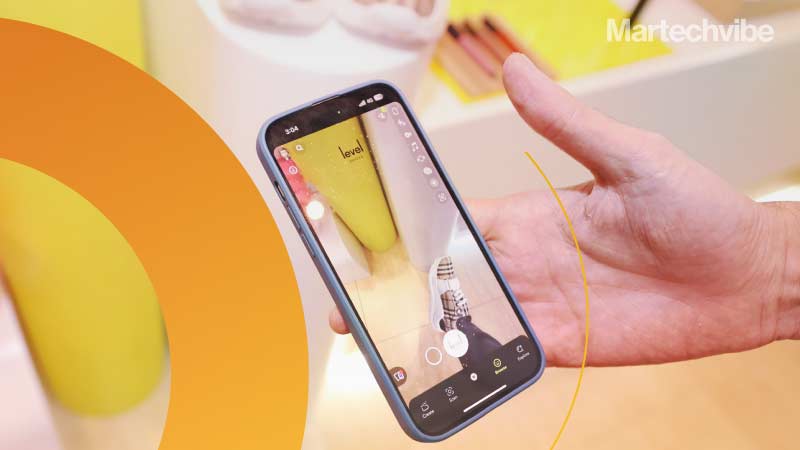Gen Z, Millennials In Saudi Arabia Will Be Frequent AR Users By 2025
Seven out of ten consumers now identify shopping as their main reason for using AR, while 84% of consumers are interested in using AR to interact with a product before buying. Snap Inc. in partnership with PwC Middle East and Retail Leaders Circle (RLC) announced the launch of their latest white paper titled, ‘The shift […]
Topics

Seven out of ten consumers now identify shopping as their main reason for using AR, while 84% of consumers are interested in using AR to interact with a product before buying.
Snap Inc. in partnership with PwC Middle East and Retail Leaders Circle (RLC) announced the launch of their latest white paper titled, ‘The shift towards immersive shopping: New opportunities for retailers in KSA.’
The study focuses on the evolution of the Saudi digital shopper and the growing desire for brands to integrate immersive technologies that elevate the shopping experience. To build and maintain competitive advantage in the new era, retailers need to look at digital not as an add-on to their traditional business model, but as the backbone to new, hyper-responsive ways of working to attract and win the loyalty of customers that today have more choice than ever before.
This is largely defined by evolving preferences as shopper behaviour becomes more complex, further adding nuances to the digital footprint within KSA. Today, Saudi shoppers are demanding more convenience in digital and physical shopping, without the demand of spending too much of their free time. There is an increasing need for new modes of personalisation and privacy, especially with Saudi shoppers who prefer having a transparent data security policy. Another aspect found to play an instrumental role in shaping the future of commerce is the more linear shopping journey, increasingly driven by sophistication. Artificial intelligence (AI) enables hyper-personalisation, which includes leveraging real-time behavioural data and advanced analytics to offer the right promotions and tailored messages in real time.
Abdulla Alhammadi, Regional Business Lead for KSA Market, Snap Inc. said: “Over the years, we have seen AR evolve from being just a mode of entertainment and self-expression, to delivering true value for both consumers and businesses. AR is already transforming the industry and is slated to metamorphosise every shopper’s journey in the near future. Today, as we ponder upon the future of retail, it’s time to be agile and adapt wholeheartedly to the latest in commerce. We at Snap Inc. believe in unlocking previously unimaginable creative possibilities, helping to make the consumer journey even more personal, accessible and convenient. Together with our partners, we have seen great results among our communities and we look forward to widening the circle for AR as a tool that leads brand engagement, with a larger scope for personalisation within a safe space for consumers.”
Roy Hintze, Partner, Deals Strategy & Operations at PwC Middle East said: “Our latest paper shows that consumers’ shopping journeys are becoming more drawn out as they look for promotions and reduced prices. However, they are willing to a great extent to pay more for local products to support their local economies and to get convenient and more bespoke services.”
Norma Taki, PwC Middle East’s Consumer Markets Leader, added: “While retailers are dealing with higher costs and supply chain issues, their challenge is to retain the loyalty of digitally savvy shoppers who are seeking the convenience of buying online with the confidence of buying in-store, they need to meet the evolving needs of this new generation of hybrid consumers who easily switch channels and blur the lines between online and offline into phygital.”
Panos Linardos, Chairman of the Retail Leaders Circle said: “At the Retail Leaders Circle, we examine regionally-significant emerging trends to drive positive industry change. We see retailers exploring new ways to bridge the physical and digital divide to meet changing customer preferences. We hope this white paper will inspire more businesses to design customer journeys around digital integration, including AR, as part of the retail planning process.”
According to the white paper, there is a major gap between how AR is perceived by consumers and how it is perceived by brands. Based on the Snap Inc. and IPSOS Augmentality Shift report, while 94% of brands consider AR to be primarily for fun, only 53% of consumers in KSA see it this way. Seven out of ten consumers now identify shopping as their main reason for using AR, while 84% of consumers are interested in using AR to interact with a product before buying.









































































































